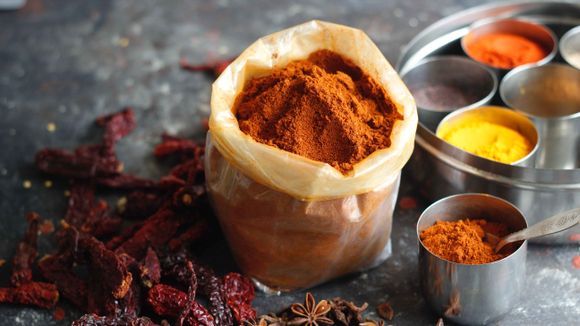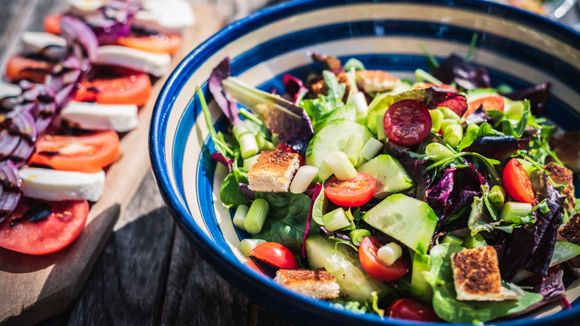Oleuropein and Its Anticancer Properties
Oleuropein, a natural polyphenol found in olive leaves and their oil, has gained attention for its potent antioxidant and anti-inflammatory properties1. Research suggests that these attributes could contribute to its potential as an anticancer agent. Studies have demonstrated oleuropein's ability to inhibit the growth and spread of cancer cells, induce apoptosis (programmed cell death) in various cancer types, and even enhance the effectiveness of chemotherapy drugs23. These findings have ignited interest in the therapeutic potential of oleuropein as a complementary approach to conventional cancer treatments.
Harnessing the Power of Olive Leaves
Olive leaves, often overlooked, contain a wealth of beneficial compounds, including oleuropein. Traditionally used in Mediterranean cultures for their medicinal properties, these leaves have gained attention in modern research. To tap into their potential, olive leaf extracts can be prepared. Combine dried olive leaves with hot water to make a nourishing tea. Alternatively, create an infusion by steeping the leaves in olive oil for topical applications. This infusion can also be used as a base for homemade skin creams, harnessing the leaves' antioxidant benefits for skin health.

Photo by Juan Gomez on Unsplash
Olive Oil Elixir: Culinary and Medicinal
Olive oil, a staple of Mediterranean cuisine, boasts more than just culinary allure. Extra-virgin olive oil, obtained from the first cold pressing of olives, retains higher levels of oleuropein and other antioxidants. It's a heart-healthy fat that also holds potential in cancer prevention. Drizzle it over salads, use it in cooking, or simply enjoy it with a piece of whole-grain bread. This flavorful oil can be a valuable addition to your anticancer arsenal.
Exploring Other Natural Remedies
Turmeric (Curcuma longa)
Turmeric, a vibrant yellow spice, contains curcumin, a compound renowned for its anti-inflammatory and antioxidant properties. Curcumin has been studied for its potential to inhibit the growth of cancer cells and prevent their spread. Incorporate turmeric into your diet by adding it to curries, soups, or smoothies. To enhance absorption, pair it with black pepper, which contains piperine.
Green Tea (Camellia sinensis)
Green tea has been cherished for centuries for its potential health benefits. Epigallocatechin gallate (EGCG), a polyphenol in green tea, has been linked to cancer prevention. Its antioxidant effects may help protect cells from damage that can lead to cancer. Enjoy a soothing cup of green tea daily to harness its potential benefits.

Photo by Prchi Palwe on Unsplash
Recipes
Olive Leaf Tea
Ingredients:
- Dried olive leaves
- Hot water
Instructions:
- Boil water and pour it over dried olive leaves.
- Cover and steep for 10-15 minutes.
- Strain and enjoy.
Olive Oil and Turmeric Dressing
Ingredients:
- Extra-virgin olive oil
- Turmeric powder
- Lemon juice
- Honey (optional)
- Black pepper
Instructions:
- Mix olive oil, turmeric, lemon juice, and a touch of honey.
- Add a pinch of black pepper to enhance absorption.
- Drizzle over salads or use as a marinade.

Photo by Prchi Palwe on Unsplash
Questions and Answers
Q: Can oleuropein replace cancer treatments?
A: Oleuropein is not a replacement for cancer treatments, but it may complement conventional therapies due to its potential anticancer properties. Always consult with a healthcare professional before making any decisions about treatment.
Q: Are there any side effects of consuming olive leaves or olive oil?
A: Olive leaves and olive oil are generally safe when consumed in moderate amounts as part of a balanced diet. However, excessive consumption may lead to digestive issues for some individuals.
Q: Is there a specific type of olive oil to look for?
A: Extra-virgin olive oil is recommended due to its higher content of beneficial compounds, including oleuropein. Look for cold-pressed oils for maximum health benefits.
Q: Can children and pregnant women consume these remedies?
A: It's advisable for children, pregnant women, and individuals with specific health conditions to consult a healthcare provider before incorporating new remedies into their routines.
Q: Are there ongoing clinical trials on oleuropein and cancer?
A: Yes, ongoing research is exploring the potential of oleuropein and its derivatives in cancer prevention and treatment. Stay updated with reputable scientific sources for the latest findings.
References
Health Benefits of Olive Leaf Extracts. (2018). Retrieved from Corona, G., Deiana, M., Incani, A., Vauzour, D., Dessì, M. A., & Spencer, J. P. E. (2019). Olive oil polyphenols: new promising agents to combat aging-associated neurodegeneration. Expert Review of Neurotherapeutics, 19(7), 627-645.
Azimi, H., Khakshur, A. A., Aghdasi, I., Fallah Tafti, M., Abdollahi, M., & Hasani Ranjbar, S. (2018). A review of animal and human studies for management of benign prostatic hyperplasia with natural products: perspective of new pharmacological agents. Inflammation & Allergy-Drug Targets (Formerly Current Drug Targets-Inflammation & Allergy), 17(1), 36-44.









